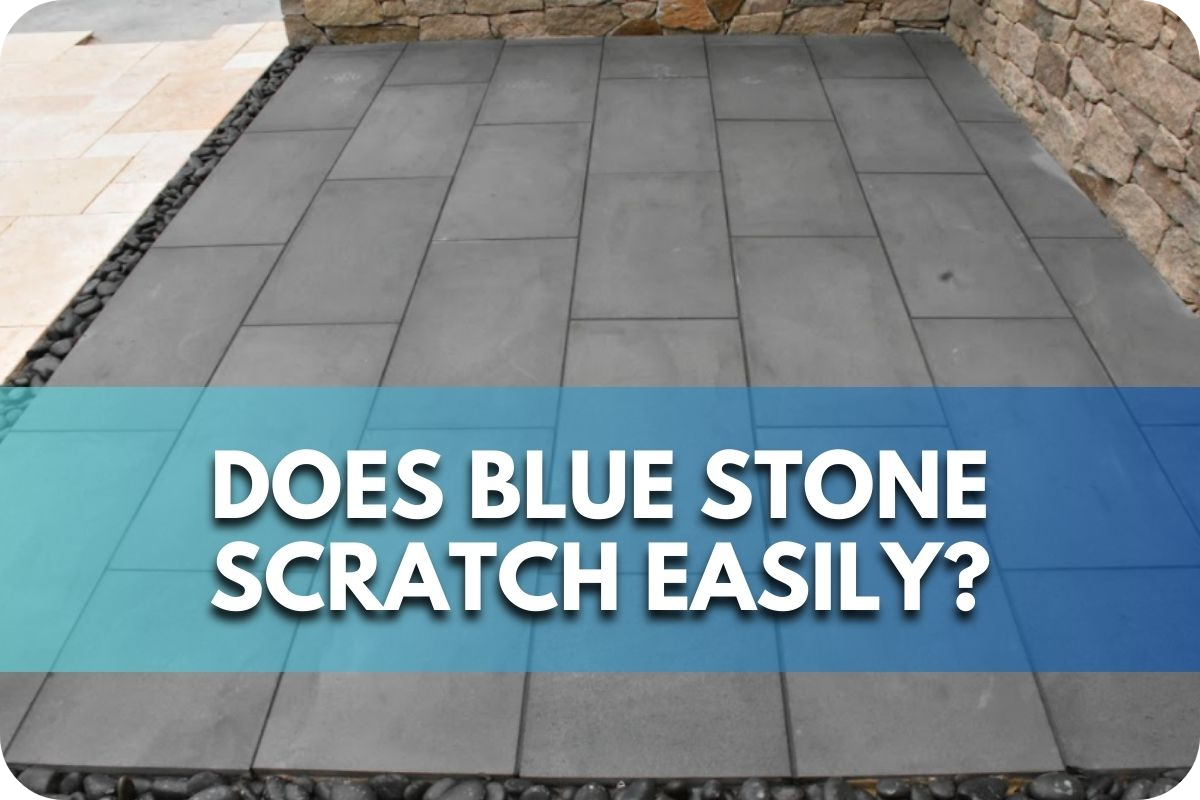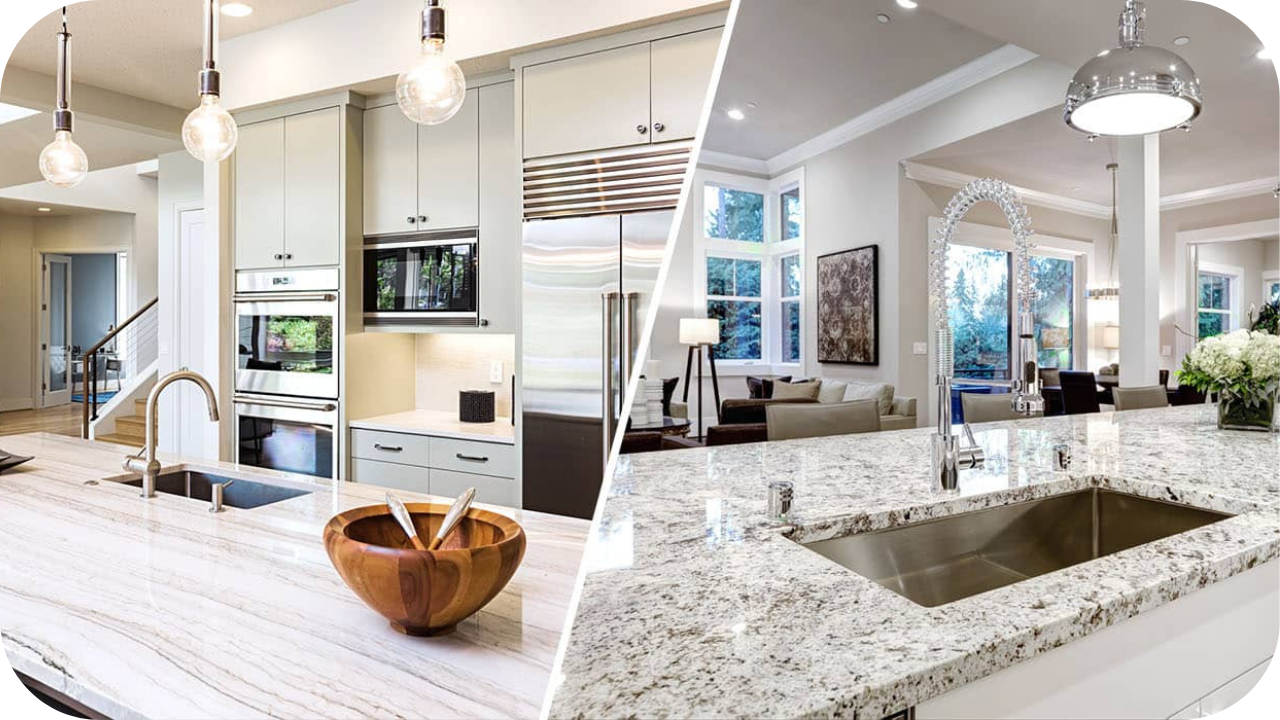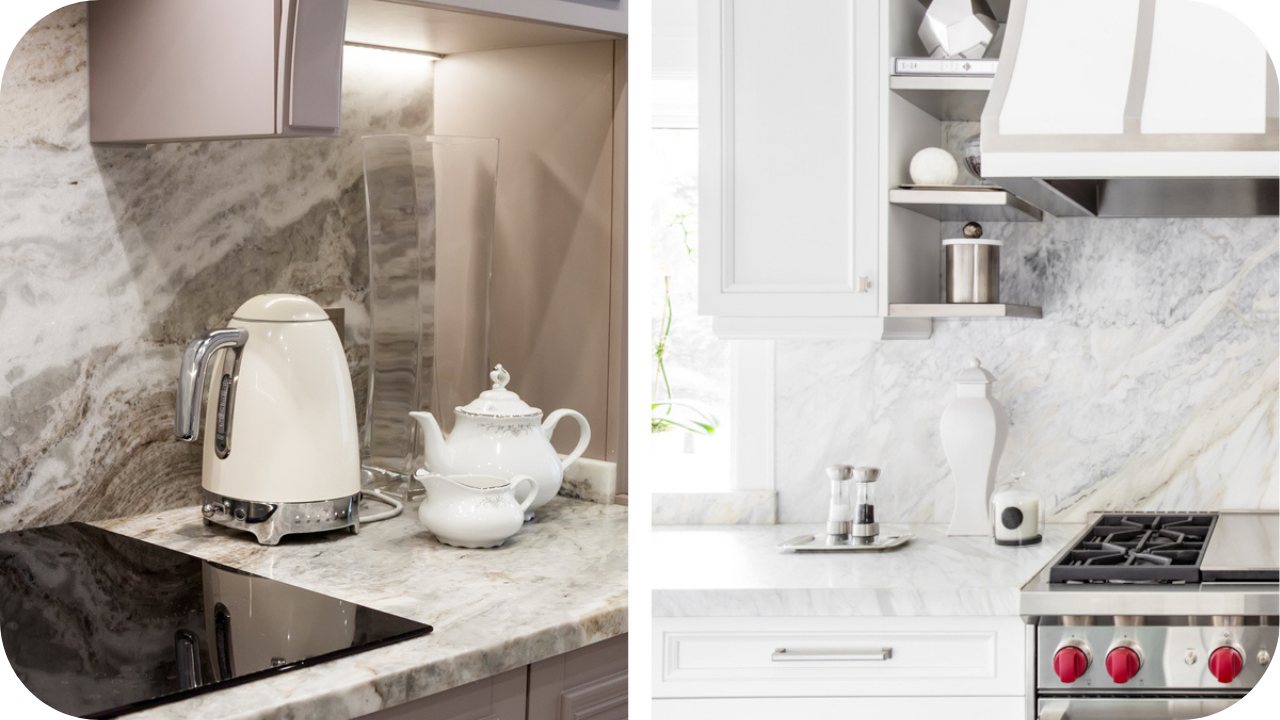
Bluestone is a gorgeous natural stone, but scratches can mar its beauty.
These scratches compromise the sophisticated look of your patio or flooring. Those surface imperfections can trap dirt and grime, making your bluestone harder to keep clean.
Don’t worry—there are ways to understand bluestone’s scratch resistance and simple methods to protect your investment for long-lasting beauty.
Does Bluestone Scratch Easily?
Bluestone is relatively resistant to scratching compared to softer stones like marble or limestone. However, like any natural stone, it can still scratch under certain conditions. Bluestone’s durability and dense composition make it a popular choice for high-traffic areas, but it’s essential to use proper care and maintenance to minimise the risk of scratches. Using protective pads under furniture and avoiding dragging heavy objects across the surface can help preserve its appearance.
Properties of Bluestone
Bluestone is a versatile and durable natural stone with several key properties that make it popular for various applications. Here are the main properties of bluestone:
Durability
Bluestone is celebrated for its exceptional strength and durability, making it a go-to choice for high-traffic areas and demanding environments. Its robust nature allows bluestone to resist cracking and chipping, ensuring it remains intact even under heavy loads.
Density
The density of bluestone is one of its defining characteristics, contributing to its impressive resistance to wear and tear. Its compact composition makes it less prone to surface damage, enabling it to maintain a smooth, solid finish over time.
This density also provides added stability, ensuring that bluestone remains firmly in place in applications like paving and cladding.
Weather Resistance
Bluestone’s resilience extends to its ability to withstand varying weather conditions, including freezing and thawing cycles. Unlike some materials that crack under temperature fluctuations, bluestone maintains its structure, making it a reliable choice for use in regions with harsh winters or frequent temperature changes.
Its natural weather resistance ensures longevity, whether it’s used for patios, pathways, or outdoor steps.
Colour
The classic blue-grey hue of bluestone is its signature, but its range extends to shades of green, brown, and lilac. These natural colour variations make it a versatile material, capable of complementing diverse design aesthetics.
Whether used in modern or traditional settings, bluestone’s unique tones enhance its visual appeal and provide endless creative possibilities for architects and designers.
Versatility
Bluestone’s adaptability makes it suitable for a wide range of applications. It can be cut into various shapes and sizes to fit different projects, including patios, pathways, steps, wall cladding, and even pool surrounds.
Its natural elegance and durability make it equally effective in functional and decorative uses, adding a timeless charm to any space.
Ease of Maintenance
Maintaining bluestone is straightforward, making it a practical choice for busy homeowners and businesses. Regular cleaning with mild detergent and water keeps it looking fresh and free from dirt buildup.
Applying a sealant can enhance its resistance to stains and weathering, ensuring that the surface remains protected and vibrant for years.
Thermal Properties
Bluestone’s ability to absorb and retain heat makes it an excellent choice for cooler climates, where its warmth can provide comfort underfoot. However, in hot climates, this thermal property may require consideration, as surfaces can become quite warm under direct sunlight.
Choosing lighter shades or incorporating shading elements can help mitigate this effect, ensuring a comfortable and functional installation.
Factors That Can Cause Scratching on Bluestone
Did you know everyday items can damage your bluestone surfaces? From abrasive dirt particles to heavy furniture, learn the key culprits behind unsightly scratches:
- Dragging Furniture: Moving heavy furniture with sharp edges or metal feet directly across bluestone can easily create scratches.
- Dropping Objects: Directly dropping kitchen utensils, tools, or other complex objects on bluestone can cause chips or scratches.
- Grit and Debris: Walking on bluestone with sandy shoes or accumulating dirt can lead to surface scratches as the particles are ground into the stone.
- Pet Claws: Dogs or cats running across bluestone floors can leave scratches, significantly if their nails aren’t trimmed.
- Acidic Substances: Some cleaners or spills (like citrus juice or vinegar) can etch bluestone, creating dull spots that differ from scratches but still mar the surface.
Preventive Measures to Protect Bluestone
Want to keep your bluestone pristine? Learn simple yet effective ways to shield it from scratches, ensuring long-lasting beauty and durability:
- Sealing: Apply a high-quality sealer designed for bluestone. This creates a protective barrier against scratches and stains. Reapply as recommended by the manufacturer.
- Felt Pads: Place felt pads under furniture legs and any objects that will sit directly on the bluestone.
- Coasters & Mats: Use coasters under drinks and placemats under dishes to prevent scratches from cutlery and glassware. Utilise doormats to reduce grit tracked indoors.
- Cleaning: Regularly sweep or vacuum bluestone to remove dust and debris. Mop with a pH-neutral stone cleaner.
- Spills: Promptly wipe up spills, especially acidic liquids, to prevent etching.
- Appropriate Applications: To better disguise minor scratches in high-traffic areas, consider honed or textured bluestone. A more burdensome stone like granite might be more suitable in environments prone to heavy scratching.
Maintenance Tips for Scratch Prevention and Care
Here are some essential maintenance tips to keep your bluestone beautiful and minimise scratches:
- Regular Cleaning: Sweep or vacuum frequently to remove abrasive dirt or debris. Mop with a gentle, pH-neutral cleaner formulated for natural stone. Avoid harsh chemicals.
- Protect High-Traffic Areas: Place rugs or runners in hallways and entryways where grit is most likely to be tracked.
- Address Spills Quickly: Blot spills immediately, especially acidic liquids that can etch the stone.
- Use Soft Tools: When cleaning, opt for soft microfiber cloths and mops to avoid scratching the surface.
- Consider Resealing: Reapply a quality bluestone sealer periodically, based on the manufacturer’s recommendations and the level of wear your stone experiences.
- Embrace the Patina: Remember, minor scratches often blend into bluestone’s natural variations over time, contributing to its unique, weathered charm.
Repairing Scratches on Bluestone
MNot all scratches are created equal, but the good news is most can be addressed effectively. Whether it’s a light blemish or a deep etch, knowing the right approach can make all the difference in keeping your bluestone flawless. Let’s dive into the best solutions for every level of damage:
Minor Scratches
Small scratches on your bluestone don’t have to be permanent. Clean the area with a pH-neutral cleaner, apply mineral oil to reduce visibility, or use fine-grit sandpaper (600 grit or higher) for deeper marks. Regular care can help maintain the stone’s natural beauty.
Significant Scratches or Etching
When scratches are severe, or etching dulls your bluestone, it’s time to call in the professionals. Stone restoration experts use advanced tools to hone, polish, and refinish the surface, restoring it to its original elegance and ensuring long-lasting durability.
Conclusion
With its durability and aesthetic appeal, Bluestone is an ideal choice for various outdoor applications. Its resistance to weather, wear, and natural colour variations add charm to any space. With minimal maintenance, bluestone can enhance your landscaping for years to come.
More To Explore

Granite vs Marble: Which Is Best for Your Kitchen?
Choosing the right stone for your kitchen benchtop is more than a design decision. It is about balancing beauty, function, and longevity. As one of

Quartzite vs Marble: Which Stone Is Right for Your Home?
Natural stone continues to define luxury in modern interiors, offering timeless elegance and a sense of permanence that few materials can match. Among the most


